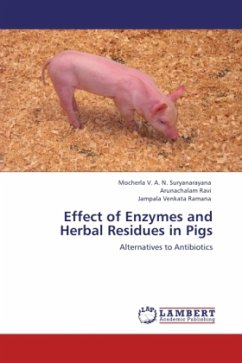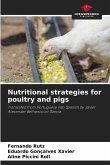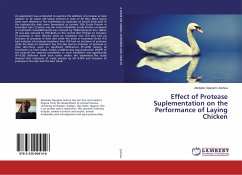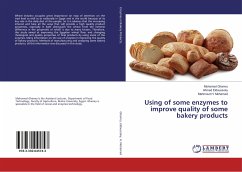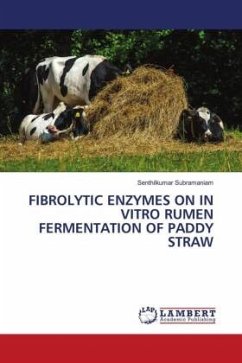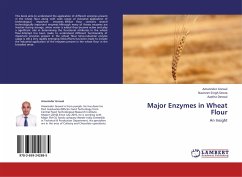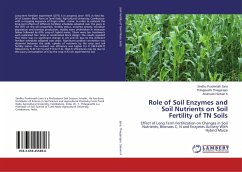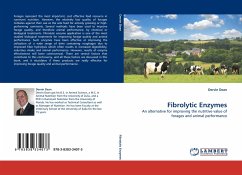In vitro studies were conducted using xylanase, -glucanase,cellulase and phytase to evaluate the best cocktail enzyme activity which was tested in vivo either with or without combination of three herbal residues of Curcuma, Emblica and Gingiber. In a completely randomized design five dietary treatments, standard (T1), economic diet (T2) supplemented with enzyme cocktail , T2 + Curcuma longa residue (T3), T2 + Emblica officinalis residue (T4) and T2+ Zingiber officinale residue (T5) were evaluated for their effect on growth performance of crossbred pigs during creep, grower and finisher phases. A trend to an increase in calcium and phosphorus retention was observed in T2-T5 groups. Carcass traits were not influenced by dietary treatments but lipid profile was affected. Fatty acid profile was affected significantly by dietary treatments. The total viable count, Coliforms, Staphylococcus and Salmonella in the large intestinal contents (CFU/gm) was lower in pigs fed diets containing herbal residues. The antibacterial effect of herbal residues on gut pathogens was in the order of Zingiber Curcuma Emblica.
Bitte wählen Sie Ihr Anliegen aus.
Rechnungen
Retourenschein anfordern
Bestellstatus
Storno

